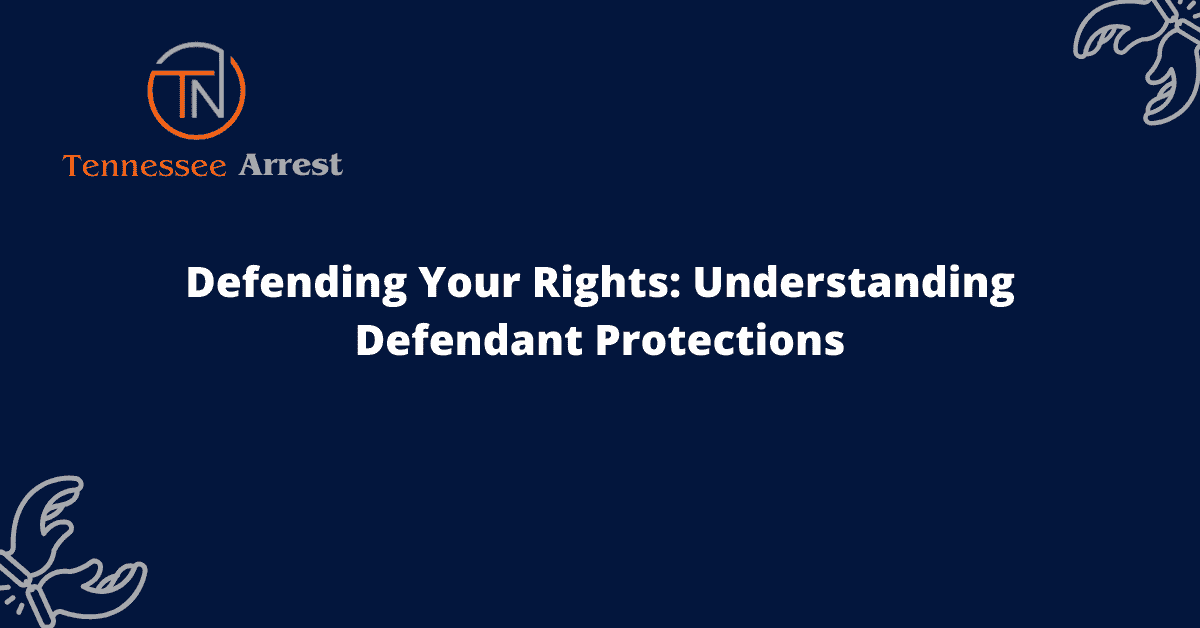Defending Your Rights: Understanding Defendant Protections
When facing criminal charges, it is crucial to understand and exercise your defendant protections to ensure a fair and just legal process. These protections are put in place to safeguard your rights and prevent any violations that may occur during the course of your case. By understanding and asserting these protections, you can effectively defend yourself and secure the best possible outcome.
One key defendant protection is the presumption of innocence. This means that you are considered innocent until proven guilty beyond a reasonable doubt. This principle ensures that the burden of proof rests with the prosecution, who must present sufficient evidence to convince the court of your guilt. As a defendant, you have the right to be treated as innocent throughout the entire legal process, and it is the responsibility of the prosecution to provide compelling evidence to prove otherwise.
Defendant Protections: The Presumption of Innocence
One key defendant protection is the presumption of innocence. This principle ensures that you are considered innocent until proven guilty beyond a reasonable doubt. It is a fundamental right that safeguards your rights and prevents any violations that may occur during the course of your case.
The Burden of Proof Rests with the Prosecution
As a defendant, you have the right to be treated as innocent throughout the entire legal process. The burden of proof rests with the prosecution, meaning they must present sufficient evidence to convince the court of your guilt. This protection ensures that the prosecution cannot simply accuse you without providing compelling evidence.
Understanding Reasonable Doubt
In order to find a defendant guilty, the prosecution must prove their case beyond a reasonable doubt. This means that there should be no logical or reasonable doubt in the minds of the jurors or judge about the defendant’s guilt. It is a high standard that ensures the defendant is not convicted based on mere suspicion or weak evidence.
The Right to a Fair Trial
Defendant protections also include the right to a fair trial. This means that you have the right to a trial that is conducted impartially and in accordance with the law. It ensures that you have the opportunity to present your case, cross-examine witnesses, and challenge the evidence presented against you.
Protection Against Self-Incrimination
Another important defendant protection is the right against self-incrimination. This means that you cannot be compelled to testify against yourself. You have the right to remain silent and not provide any evidence or statements that could potentially incriminate you. This protection ensures that you are not forced to participate in your own prosecution.
The Right to Legal Counsel
Defendant protections also include the right to legal counsel. You have the right to be represented by an attorney who can provide you with legal advice, advocate for your rights, and ensure that you receive a fair trial. This protection ensures that you have the necessary support and guidance throughout the legal process.
Preserving the Integrity of the Legal Process
By understanding and asserting these defendant protections, you can effectively defend yourself and secure the best possible outcome. These protections are in place to safeguard your rights and prevent any injustices from occurring. It is crucial to be aware of your rights and exercise them to ensure a fair and just legal process.
FAQs
What are defendant protections?
Defendant protections are legal rights and safeguards provided to individuals who are accused of a crime. These protections ensure that the accused receive a fair and just trial, and that their rights are upheld throughout the legal process.
What is the presumption of innocence?
The presumption of innocence is a fundamental principle in criminal law that states that an accused person is considered innocent until proven guilty. This means that the burden of proof lies with the prosecution to prove the guilt of the defendant beyond a reasonable doubt.
What is the right to legal representation?
The right to legal representation, also known as the right to counsel, ensures that defendants have the right to be represented by an attorney during criminal proceedings. This helps to ensure that their rights are protected, and that they have a fair opportunity to present their case.
What is the right to remain silent?
The right to remain silent allows defendants to refuse to answer questions or provide self-incriminating statements during interrogations or court proceedings. This right protects individuals from being compelled to testify against themselves and helps to prevent coerced confessions.
What is the right to a speedy trial?
The right to a speedy trial guarantees that defendants are entitled to have their case brought to trial within a reasonable time frame. This right ensures that defendants are not subjected to unnecessary delays or prolonged pretrial detention.
What is the right to confront witnesses?
The right to confront witnesses, also known as the right of confrontation, allows defendants to cross-examine the witnesses presented against them. This right enables defendants to challenge the credibility and reliability of the testimony given by witnesses in court.







